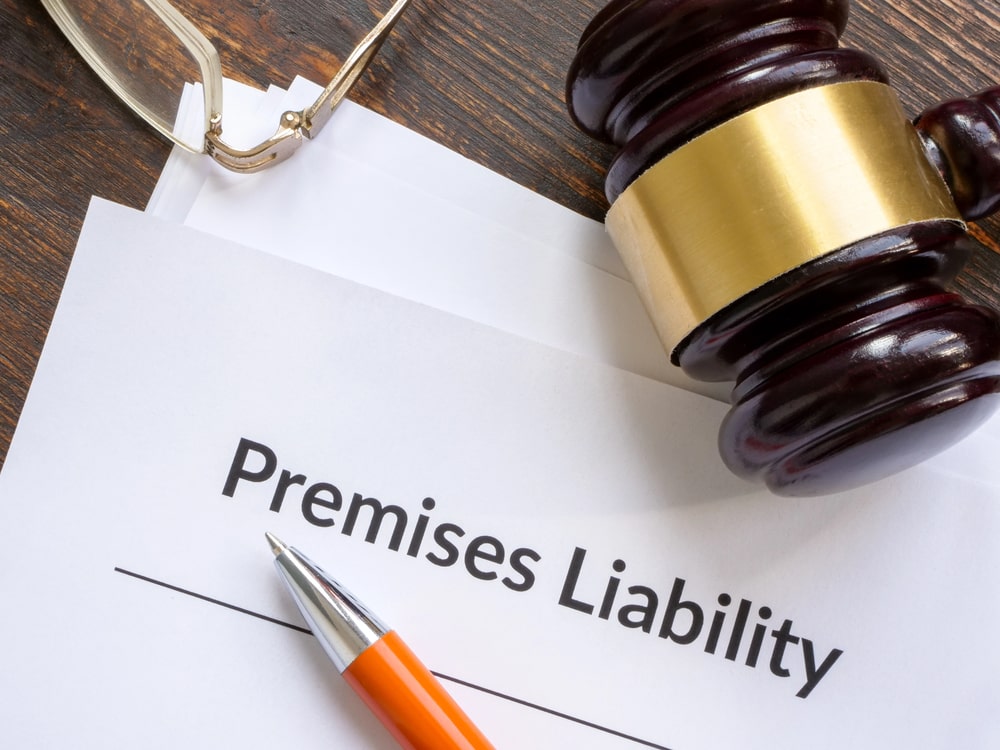 Imagine walking into a store, only to slip on an unmarked wet floor. Or visiting a friend’s apartment and falling down poorly maintained stairs. Injuries on someone else’s property can happen unexpectedly, and when they do, who is responsible?
Imagine walking into a store, only to slip on an unmarked wet floor. Or visiting a friend’s apartment and falling down poorly maintained stairs. Injuries on someone else’s property can happen unexpectedly, and when they do, who is responsible?
This is where premises liability law comes into play. Property owners—whether homeowners, landlords, business owners, or managers—have a legal responsibility to maintain safe conditions for visitors. But when does that responsibility translate into legal liability? And what should you do if you’re injured on someone else’s property?
At Harr Law Firm, we help individuals, families, and businesses understand their legal rights in premises liability cases. If you’ve been injured due to unsafe conditions, you may be entitled to compensation. Here’s everything you need to know about when property owners are responsible for injuries and what steps to take next.
What Is Premises Liability?
Premises liability is a legal concept that holds property owners accountable for injuries that occur due to unsafe conditions on their property. However, liability is not automatic—it depends on factors such as the type of visitor, the nature of the hazard, and whether the owner took reasonable steps to prevent harm.
Who Can Be Held Liable in a Premises Liability Case?
If a hazard exists and the owner fails to address it or warn visitors, they may be legally responsible.
When Are Property Owners Responsible for Injuries?
Property owners aren’t expected to prevent every possible accident, but they are required to take reasonable steps to fix or warn about known hazards.
Visitor Status and Duty of Care
The level of responsibility a property owner has depends on the status of the visitor:
Invitees – These are people explicitly invited onto the property for business purposes (e.g., customers in a store, tenants in an apartment complex). Owners owe them the highest duty of care, meaning they must regularly inspect the property for hazards and fix them promptly.
Licensees – These are social guests, such as friends or family visiting a private home. The owner must warn them of known dangers, but they aren’t necessarily required to inspect for unknown hazards.
Trespassers – If someone enters a property without permission, the owner generally does not owe them a duty of care, except in cases involving attractive nuisances (e.g., an unfenced swimming pool that may attract children).
Common Situations Where Property Owners May Be Liable
Example: If a store owner ignores a large spill in the aisle and a customer slips and breaks their wrist, the owner could be held liable for negligence in maintaining a safe environment.
How Do You Prove Liability in a Premises Liability Case?
To successfully file a claim, you must prove that the property owner’s negligence directly caused your injury. The key elements of a strong premises liability case include:
Key Evidence in a Premises Liability Case:
If the property owner or business ignored a known hazard, they may be responsible for your injuries.
Defenses Property Owners May Use Against a Claim
Property owners and their insurance companies often try to avoid liability using the following defenses:
Even if these defenses are raised, an experienced premises liability attorney can fight back and protect your rights.What to
Do If You’re Injured on Someone Else’s Property
A successful premises liability claim can provide financial relief for the damages you have suffered. Compensation may cover medical expenses, including hospital bills, surgeries, therapy, and ongoing care. If your injuries have impacted your ability to work, you may be entitled to lost wages, ensuring you are compensated for missed time and any reduced earning potential. Additionally, you can seek damages for pain and suffering, which accounts for the physical pain, emotional distress, and diminished quality of life caused by your injuries. In cases involving extreme negligence or reckless disregard for safety, punitive damages may also be awarded to hold the responsible party accountable and prevent similar incidents in the future.
What Compensation Can You Recover in a Premises Liability Case?
A successful claim can help recover:
How a Premises Liability Lawyer Can Help
Navigating a premises liability case can be complex, especially when property owners and insurance companies work aggressively to minimize or deny claims. At Harr Law Firm, we conduct a thorough investigation to gather critical evidence that supports your case. We negotiate strategically with insurers to secure fair compensation, ensuring that you receive what you rightfully deserve. If a fair settlement isn’t possible, we are fully prepared to take your case to court and fight for justice on your behalf.
Justice Starts with Taking Action
If you’ve been injured due to unsafe conditions on someone else’s property, you have legal rights. Holding negligent property owners accountable not only helps you recover but also ensures safer environments for others.
Contact us for a free consultation. Let us fight for the compensation you deserve so you can focus on recovery.